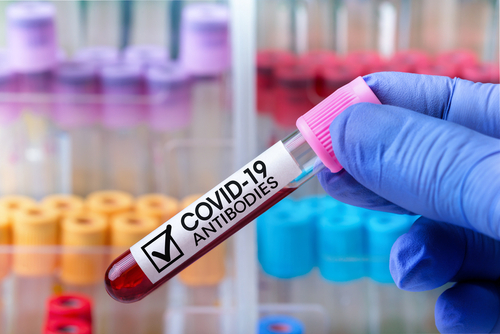
Eli Lilly and Company announced a new collaboration with Amgen last week that will allow a significant increase in supply capacity and scaling of production of its potential COVID-19 therapies.
The news came a mere day after Lilly announced that proof of concept data from its BLAZE-1 clinical trial showed a reduced rate of hospitalization for patients treated with LY-CoV555, a neutralizing antibody. The drug is meant to treat symptomatic COVID-19 in outpatient settings and was being tested through a randomized, double-blind, placebo-controlled phase two study.
“Based on our initial clinical studies, we believe that virus neutralizing antibodies, including LY-CoV-555, could play an important role in the fight against COVID-19,” Dr. Daniel Skovronsky, Lilly’s chief scientific officer and president of Lilly Research Laboratories, said. “Increasing the manufacturing capacity for our neutralizing antibodies through this collaboration with Amgen is a crucial next step, and together we hope to be able to produce many millions of doses even next year.”
Amgen’s expressed interest in the data showcased by these therapies, particularly in their ability to reduce hospitalizations. Throughout the BLAZE-1 trial, mild to moderate recently diagnosed COVID-19 patients were either given placebos or therapeutic doses at 700 mg, 2,800 mg, or 7,000 mg. Most patients reached viral clearance within 11 days of treatment — even those on placebos. Still, LY-CoV555 seemed to improve viral clearance at day three and reduced the overall proportion of patients with high viral loads later on.
Another major point of note was that those using LY-CoV555 had hospitalization rates of 1.7 percent, down from 6 percent for placebos. While that might not seem like much, it represents a 72 percent risk reduction, albeit in a limited population. Better still, the drug was well-tolerated across all doses and provoked no serious side effects.
“These interim data from the BLAZE-1 trial suggest that LY-CoV555, an antibody specifically directed against SARS-CoV-2, has a direct antiviral effect and may reduce COVID-related hospitalizations,” said Daniel Skovronsky, M.D., Ph.D., Lilly’s chief scientific officer and president of Lilly Research Laboratories. “The results reinforce our conviction that neutralizing antibodies can help in the fight against COVID-19.”
As to BLAZE-1, testing remains ongoing. LY-CoV555 is now being tested in conjunction with LY-CoV016, another Lilly antibody. The latter works a bit differently, binding a different epitope in the SARS-CoV-2 spike region to have its effect. The new portion of the trial will involve a larger patient group at higher risk from the virus. The goal will be to see if the antibody combination can reduce the number of patients with high viral load and reduce COVID-linked hospitalizations.
“We are proud to partner with Lilly and leverage our deep technical expertise in antibody development and, in particular, our strong capabilities in the scale-up and manufacturing of complex biologics,” Esteban Santos, executive vice president of Operations at Amgen, said. “This is yet another example of the ways our industry is closely collaborating to combat this devastating disease and help patients around the world access new therapies.”




